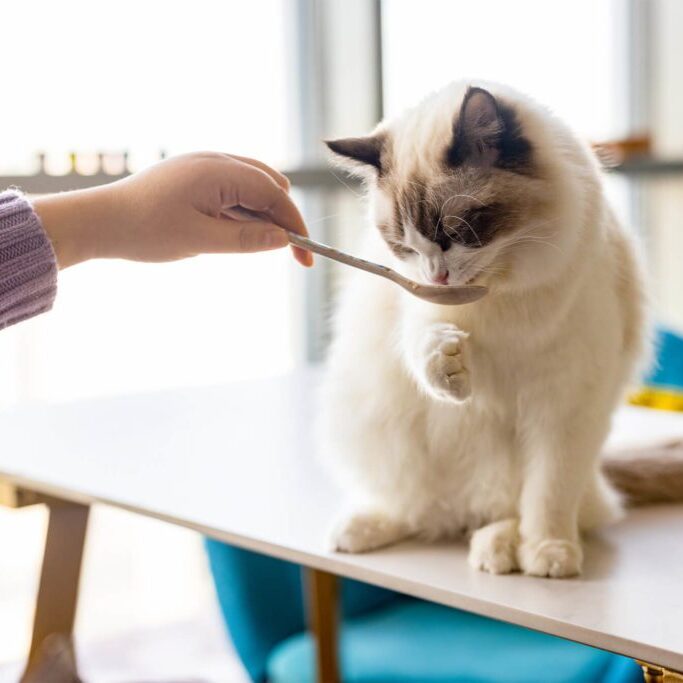Dogs
Allergies in Dogs

Hit the green play button above to start listening to this podcast:
Why do our dogs get allergies? Is it about their food? Their environment? Do they need to be treated? Boarded Veterinary Dermatologist Dr. Ashley Bourgeois joins our host, Dr. Natalie Marks, to talk about how to handle all of these issues as well as tell us how she handles them with her own dog who has allergies.
Dr. Ashley Bourgeois:
I have my own allergic dog. It’s something that can be frustrating. Even being an owner of an allergic dog as a dermatologist is frustrating. There’s a few main categories of things. We see dogs being allergic to fleas, and that does not include having a ton of fleas, like an infestation that can be just being sensitive to any flea exposure outside, which we may never see visually with our eyes. Food. It’s great if it’s food, because it’s something we can control, but unfortunately food allergies are not quite as common as we would hope as environmental allergies. So just like us as people, pollens, grasses, trees, dust, mites, these are probably some of the more typical allergies we see depending on where owners live geographically in the U.S., but ultimately environmental tends to be some of the more common things that we see dogs allergic to.
Dr. Natalie Marks:
And I know a lot of pet parents are probably thinking, gosh, I think I’ve seen my dog doing one or two or all of these signs, but is there a level of severity where they should bring their dog to the veterinarian? Because, I have seasonal allergies and I might sneeze or cough a little bit in the fall, but I don’t necessarily go to the doctor every single time I sneeze or cough. When do you encourage pet parents to seek veterinary attention?
Dr. Ashley Bourgeois:
It’s always really important, even if signs are mild, to mention it to your veterinarian. So even if you’re just there with your annual wellness exam, just making sure it’s on their radar, like, oh, I think my dog licks her paws a little bit, but I don’t know if it’s that bad. First of all, there’s lots of mild things we can do. Certain topical products, just bathing doesn’t mean we have to throw them on medications. There’s nutritional support. So there’s diets that can help these mildly allergic dogs. But one thing we can see is progression. So it started out really mild but as they get older, it gets a lot worse. So I think making sure everyone’s on the same team is important. Now, when we use an itch scale, we grade them on a scale of one to 10. So one maybe even zero being, not really a dog who licks or chews or scratches at all and 10 being, I am staying up all night. I’m tearing myself apart. I am just not stopping with my scratching and itching. Usually we say about a two, maybe three can be fairly normal. So, everyone’s different in how they judge the ICH score, but that’s kind of how we tell if things are getting out of hand. So if they are two or under, I still think it’s worth mentioning, but maybe we do more mild things like bathing. But certainly if we’re starting to lick and chew and they can’t be distracted, we’re getting those signs of infection, like redness of the skin, hair loss, absolutely worth bringing into the veterinarian so we can get ahead of these issues.
Dr. Natalie Marks:
Yeah. I love that you brought up the itch scale. Cause I talk about that too, a lot with my clients. And I always encourage people in the house to have everybody do the itch scale, not just one person, because a lot of times one parent might be out of the house working and they only see the dog doing a couple things, but someone who’s home might be like, no, all day, every day you’re, you know, our dog is licking it’s paws, you know, constantly. So I do think it’s important to get everybody’s assessment so that we can make sure we’re not missing certain times of the day where your dog might be uncomfortable.
Did you find this helpful? Share it!
Recent Posts
About VetScoop
Pets make our lives better. At VetScoop, we’re on a mission to return the favor by giving you access to trustworthy, science-based information so you can provide the best possible care for your pets.
Related Posts We Think You'd Like





